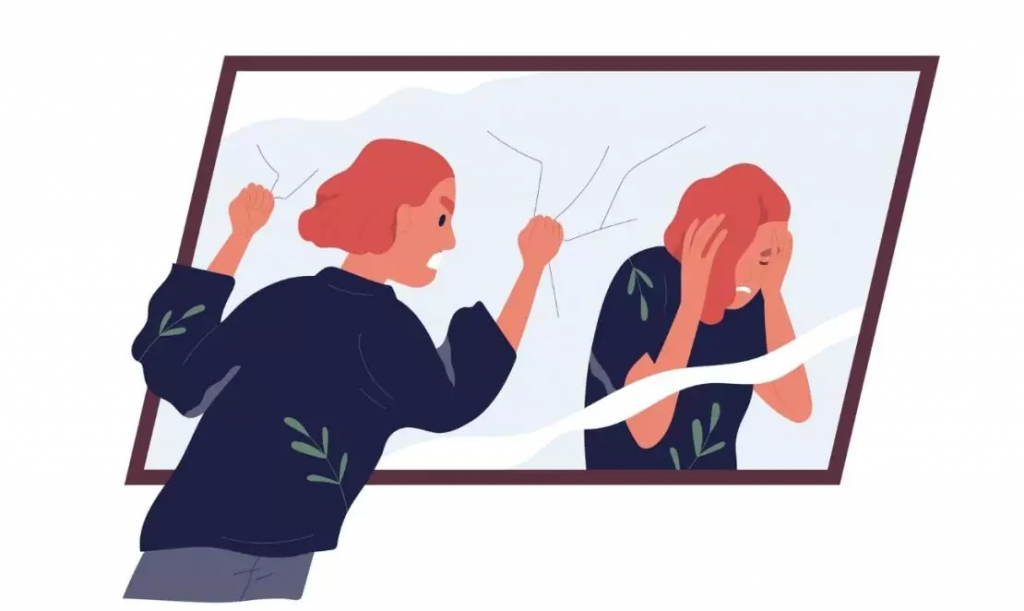Do you often find yourself in the grips of something deeply painful and deeply vulnerable? Something you did or did not do means to your brain and body, you are not good enough? And instead of filling that space with love, you engage with the coping mechanism of tearing yourself down? That’s a self-shame spiral in a nutshell. While it can feel like there is no way out, there are a few ways to extricate yourself from a shame spiral and reclaim a positive outlook on your life.
What exactly is a self-shame spiral?
People who feel extreme shame tend to internalize and over-personalize everything that happens to them. The internal critic in their heads continually judges and criticizes them, telling them that they are inadequate, inferior, or worthless, making them unable to see things in perspective. At the core of feeling ashamed is a feeling that we are exposed to — either to others or to ourselves.

In response to an event that can trigger the shame emotion, our focus turns inward as the initial event is played over and over again in our minds. We start to spiral, and the more shame we feel, the more things we find to be ashamed of.
While it’s natural to feel ashamed after a major mistake, it’s important to understand the feeling and find a way to let it go because it can have a deeper effect on your psychological well-being otherwise.
Understanding the origin of this emotion
Shame as an emotion is so hurtful because it’s often tied to our sense of identity. This complex response is acquired during early child-rearing when children are completely dependent on the bond with their caregivers. Children who are continually criticized, severely punished, neglected, abandoned, or in other ways mistreated quickly develop feelings of inadequacy, inferiority, or unworthiness. These shameful experiences damage the roots from which self-esteem grows. Such dysfunctional parenting styles can make children shame-bound. This kind of shame is very difficult to overcome. The formative wounds of childhood — scars from being teased, bullied, or ostracized by parents, peers, and others — can become fixed in our identity.
What you can do to come out of a spiral of self-deprecating thoughts
The more powerful our experience of shame, the more we feel compelled to hide those aspects from others, and even from ourselves. Thus to end this feeling, the first step is to bring to light whatever is seen as shameful. After all, a wound that’s never exposed will never heal.
Here are a few things you can do to overcome this episode:
Identify your triggers
We can all get trapped in shame spirals, but some things might trigger them more than others. Maybe there are certain people, places, or things that make us feel ashamed. While triggers can vary from person to person, the most common ones include embarrassing events, critical comments, and social rejection. Being able to discover the origins of shame-like experiences will set the stage for having greater control over your life as you become aware of what triggers these shame reactions it’s important to be aware of your triggers so you can recognize when you’re starting to spiral
Avoid isolation
People trapped in a shame spiral tend to isolate themselves, cutting themselves off from the support of family and friends. In fact, the etymological meaning of the word shame is ‘to hide’ or ‘cover up’. But since shame thrives on secrecy, it can’t survive when your thoughts are exposed to others.

Reach out to your support group. It could consist of close friends, family, a support group, or even a therapist. Whoever you choose to confide in about your feelings, they’ll likely be able to help you view your thoughts more objectively, be kinder to yourself, and break the spiral by introducing new perspectives.
Write it down
When you can’t or won’t discuss your shame with an outsider, even a kind therapist, then writing, or even thinking openly about your shame, can come to your rescue. Writing is a way to get some healthy distance from your negative thought patterns. In easy words, translating your thoughts into words, helps you stay more present with the reality of whatever your situation is.
Writing may also help you realize the fact that while it feels awful and unbearable right now, it may not feel that way tomorrow, and almost definitely will not in a week, month, or year.
Cultivate self-compassion
To embrace who you are and treat yourself in the same respectful, empathetic way you’d treat others. When you’re feeling shame, ask yourself: Would I talk to a friend the way I’m talking to myself right now? This question can help you recognize when a negative thought spiral is getting the upper hand and can challenge your shame-based thinking.

Bottom line
Remember shame is a normal emotion. Keeping your feelings of shame in perspective can relieve you of a harmful tendency to self-blame, and, eventually, make peace with your shadow side. Next time you find yourself in a shame spiral, remind yourself that we all mess up sometimes. Tell yourself that you are good enough, worthwhile, and deserving of love and acceptance, and let yourself off the hook. However, if you think the wound is deep and it’s getting in the way of your life, don’t let it sabotage your mental and emotional health, reach out to a mental health professional to unburden yourself.
About the author:
Suhasini Jha is a Mumbai-based ex-journalist who has previously worked with Firstpost and Moneycontrol.
Read more: Teaching Your Child How To Deal With Challenges
Like & Follow ThinkRight.me on Facebook, Instagram, Twitter, and Telegram to stay connected.






























